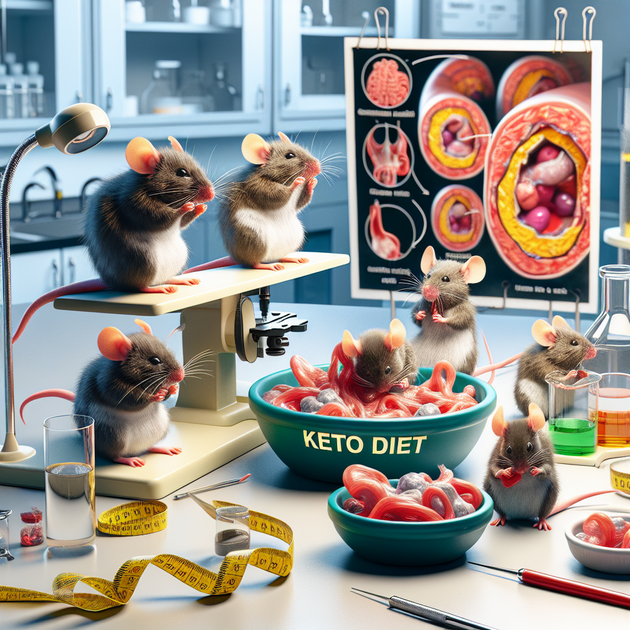Did you know that mice fed a keto diet developed trouble processing sugar—and even showed signs of liver and cardiovascular disease? It’s not exactly what you’d expect from a diet that’s become famous for weight loss and supposed health benefits. But recent research is giving us all something to think about.
What Did the Keto Diet Do to Mice?
Let’s start with some basics. The keto diet is all about eating very few carbs and lots of fat. In theory, this shift forces your body (or in this case, a mouse’s body) to burn fat instead of sugar for fuel.
But when scientists put mice on a long-term ketogenic diet—think months rather than weeks—they noticed some surprising things:
- The mice struggled to process sugar properly when it was reintroduced.
- They developed buildups of fat in their bloodstream.
- Signs of both liver damage and cardiovascular issues started appearing.
That last bit really stood out. The very thing that makes the keto diet “work” (burning fat for fuel) might also be contributing to fat buildup in places you don’t want it—like your blood vessels or liver.
The Science Behind Sugar Processing Problems
So why did these keto-fed mice have so much trouble handling sugar? When your body gets used to running on fat, it gets less efficient at dealing with carbs. That means if you suddenly eat something high in sugar after weeks or months on low-carb foods, your system may not know what to do with it.
Here’s what researchers found:
- The livers of these mice couldn’t break down sugars as well as before.
- Blood tests showed higher levels of fats clogging up their systems.
- Some even developed fatty liver—a risk factor for more serious diseases down the line.
It’s kind of like taking a car that runs on diesel and suddenly filling it with gasoline; the engine just isn’t ready.
Long-Term Keto Diet Risks: More Than Just Mice?
You might be thinking—okay, but I’m not a mouse! Fair point. But these findings raise important questions about what long-term adherence to the keto diet might do in people too.
Here are some key takeaways from this mouse study:
- Fat in the bloodstream: Long-term high-fat intake led to more circulating fats.
- Liver strain: The liver worked overtime processing fats instead of carbs.
- Cardiovascular signals: Some markers pointed toward early heart issues.
A friend of mine once tried the keto diet for six months. She lost weight quickly but started feeling tired all the time—and her doctor noticed her cholesterol levels were creeping up. She eventually switched back to a more balanced way of eating because her body just wasn’t feeling right.
Should We Rethink Keto After This?
The bottom line is that while high-fat, low-carb diets like keto can have short-term benefits for some people (especially those needing rapid weight loss or managing certain medical conditions), there could be hidden downsides if you stick with them too long.
If you’re thinking about going full-on keto—or have been doing it for a while—it might be worth checking in with your healthcare provider about your heart health, cholesterol levels, and how your body processes sugar.
Here are a few tips if you’re considering—or already on—a ketogenic eating plan:
- Get regular blood work done to check cholesterol and liver function.
- Pay attention if you feel unusually sluggish or notice any health changes.
- Don’t jump straight from strict keto into eating lots of carbs; transition slowly if needed.
Scientists are still figuring out how animal studies like this translate directly to humans—but it’s definitely food for thought!
So what do you think? Would findings like these make you reconsider trying (or sticking with) the keto diet?

Leave a Reply